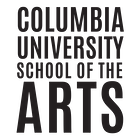Dodge Hall
2960 Broadway
New York, New York 10027
United States
arts@columbia.edu
Renowned artist and designer Maya Lin presents new and major works, as part of Columbia University School of the Arts’ 2020–21 season of public programs and engagement on the concept of “Repair” on Thursday, June 10 at 12pm EDT.
Introduced by Carol Becker, Dean of Columbia University School of the Arts. Followed by a conversation with Andrew Revkin, The Earth Institute. Free and open to the public. Registration is required.
Mapping the Future adds to Lin’s ongoing project, What is Missing?, which “creates, through science–based artworks, an awareness about the present sixth mass extinction of species, connects this loss of species to habitat degradation and loss, and emphasizes that by protecting and restoring habitat, we can both reduce carbon emissions and protect species.”
On display through November 14 in Madison Square Park, Ghost Forest is a “towering stand of 49 haunting Atlantic white cedar trees. Lin brings her vision as an artist and her agency as an environmental activist to this project, a memory of germination, vegetation, and abundance and a harsh symbol of the devastation of climate change. The height of each tree, around 40 feet, overwhelms human scale and stands as a metaphor of the outsized impact of a looming environmental calamity.”
In 2009, Maya Lin was awarded the National Medal of Arts, the nation’s highest honor for artistic excellence. In 2016, President Barack Obama awarded Lin the Presidential Medal of Freedom, praising her for a celebrated career in both art and architecture, and for creating the Vietnam Veterans Memorial, a sacred place of healing in the US capital.
Co-presented by Center for the Study of Social Difference, Columbia University School of the Arts, Columbia World Projects, The Earth Institute, and The Forum.
Columbia University School of the Arts recognizes Manhattan as part of the ancestral and traditional homeland of the Lenni Lenape and Wappinger people. By acknowledging the legacies of displacement, migration, and settlement that have enabled us to gather, we are taking a small first step toward the long and overdue process of healing and repair. The School of the Arts will continue to confront and address issues of exclusion, erasure, and systemic discrimination in our community through ongoing education and responsible representation.

